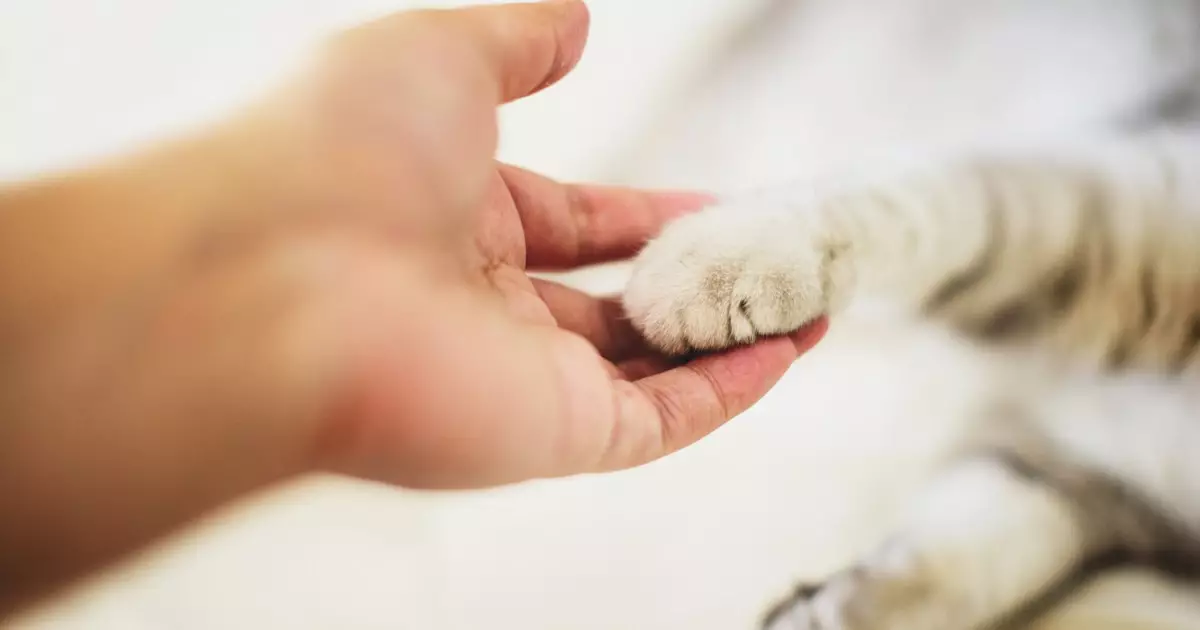When individuals engage in estate planning, the focus often tends to be on material possessions—real estate, investments, and savings accounts. However, one significant subject that frequently does not receive the attention it deserves is the welfare of pets, particularly cats. The pivotal question arises: what becomes of your cherished feline companion in the event of your death? The outcome largely hinges on the level of planning executed beforehand.
According to insights from Legal and General, if an individual passes away in a household with family members, ownership of pets generally transitions automatically to those who continue to reside there. This scenario typically unfolds without complications, provided that the family members agree to take on the responsibility of care. In contrast, if you live independently, it becomes imperative to consider a contingency plan for your pet’s care following your death. This can be accomplished by incorporating a pet-specific clause in your will or by leaving detailed written instructions regarding your feline companion.
Despite your relationship status or living situation, establishing a strategy for your cat’s future is critical. Planning for your pet isn’t just about providing for their basic needs; it is an act of love and a final expression of responsibility towards them. Utilizing a will to specifically address the care of your cat ensures that your pet will not be left vulnerable in a chaotic scenario. Let’s delve deeper into the advantages of explicitly including your feline friend in your estate plan.
First and foremost, including your cat in your will allows you to appoint a trustworthy individual as the guardian of your pet. This gives you the comfort of knowing that someone you respect will look after your cat with affection and diligence. Beyond that emotional assurance, it also presents a chance for you to arrange financial resources dedicated exclusively to your cat’s welfare. You can designate funds to cover their vet bills, food, grooming, and any additional expenses that might arise, thus safeguarding your pet’s quality of life even after you are no longer able to provide for them.
Furthermore, specifying your cat’s daily habits, dietary requirements, and medical needs in your estate plan helps ensure continuity in their care. In an emotionally charged time, having clear instructions can eliminate confusion and stress for both your chosen guardian and your pet.
While the advantages of integrating your cat into your will are palpable, several challenges deserve consideration as well. Estate planning can often incur substantial costs—sometimes thousands of dollars for comprehensive legal documentation. Additionally, cats tend to live shorter lives compared to humans, which raises the question: will a plan designed for your pet endure for years, or will you find yourself having structured a plan for a pet that may no longer be around by the time it is needed?
There’s also the crucial aspect of estimating the right financial resources to allocate for your cat’s care. Miscalculations can lead to either surplus funds or inadequate provisions, both of which carry weighty implications for the quality of care your cat receives. Overfunding can tie up resources that could be utilized for other significant matters in your estate, while underfunding could stretch your guardian thin financially, jeopardizing your pet’s well-being.
The repercussions of failing to account for your cat’s future can be devastating. In cases where no protective measures are in place, a cat bereft of direction may end up in a shelter—an outcome that may not guarantee them a second chance at a loving home. In dire situations, this could result in euthanasia if alternative solutions are not favorable. Furthermore, the absence of a clear plan might lead to your cat being passed around various individuals, causing an undue strain on their emotional state.
Given these possibilities, it’s essential to take proactive steps to reduce the turmoil your cat could experience in such an unstable situation. Properly documenting your intentions offers a guardrail against potential chaos following your death.
To ensure that your wishes for your cat’s future are honored, meticulous documentation of your plans is critical. Relying on informal arrangements or verbal agreements may leave your pet vulnerable after your passing, as these options lack the force of law. Establishing explicit instructions in your will solidifies the legal foundation required to protect your pet’s best interests.
Moreover, it’s wise to select an alternate guardian in your will, as life is unpredictable. This preemptive strategy guards against scenarios where the primary appointed guardian is unable to take on the responsibility. Communicating your intentions and providing pertinent documentation to guardians enhances their preparedness and clears any uncertainties they may have regarding their new role.
Navigating the complexities involved in estate planning for pets, particularly cats, is a critical responsibility for pet owners. The act of including your feline companion in your will not only provides peace of mind but guarantees they receive the care they deserve long after your departure. While some challenges do exist, the benefits of proactive planning far surpass the potential downsides. Make it a priority to create a legally binding plan now, ensuring that your beloved cat has a secure and loving future, free from the risks of uncertainty. The time to act is now—your furry friend is counting on you.
